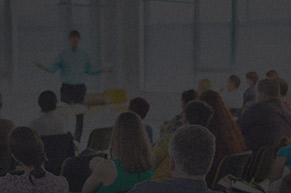Session Agenda
Enago in collaboration with Mahasarakham University conducted interactive online sessions for research scholars at different career stages to help them achieve publication success. Our first session aimed to educate researchers to efficiently manage references and citations while preparing their manuscripts and avoid plagiarism. Further, we shared practical and effective tips to increase the citations of research articles and make a significant impact. Finally, we shared insights on citation databases, related metrics, and ways to interpret them as a measure of research excellence.
Session 1: Opening Speech by MSU president
Time: 13:30 - 13:50(Local time)
Session 2: How to Manage References—Tips on Inserting Citations & Avoiding Plagiarism
Date: 10th March 2022
Time: 14:00 - 15:00 (Local time)
Citations allow research scholars to acknowledge significant scientific contributions by other researchers in their field and increase their credibility as a scientist. It also works as evidence for assertions and claims that researchers make in their manuscript. Further, an exhaustive and methodical reference list is a hallmark of a well-informed researcher. In the first session, we will discuss good citation practices and share tips to draft a well-organized bibliography. Researchers will learn:
- Why proper citation and referencing is important?
- Why and what should you cite?
- An overview of different citation styles
- Where can you find citations/references?
- Forward and reverse searches
- Paraphrasing and quoting
- How to avoid plagiarism
- Reference management tools
Session 3: How to Evaluate Research Impact through Citation Analysis
Date: 10th March 2022
Time: 15:00 - 16:00 (Local time)
Understanding research metrics is fundamental for researchers to be able to assess the scholarly impact at the author and journal level. While citation metrics are prominently used to quantify and determine the quality of scientific publications, alternative metrics (Altmetrics) compliment this traditional approach by providing insights on how readers are engaging with the research output online. This session will help researchers increase their awareness of the following:
- An overview of Bibliometrics, Scientometrics, and Altmetrics
- Role of citation analysis (citation metrics) and its significance
- How to measure research impact using research metrics (Journal, Article, and Author metrics)?
- Citation databases and their features
- Applications of citation-based indicators
Session 4: How to Boost Citations—Tips for Researchers
Date: 10th March 2022
Time: 16:00 - 17:00 (Local time)
In today’s academic publishing landscape, it is as important for researchers to promote their research as it is to publish it in a good journal. The number of times a work is cited indicates its impact on the field. An increase in the citation count undoubtedly has a positive impact on a researcher’s career because universities and funding agencies often look at the number of publications and the citation count jointly, when making tenure and grant decisions. It is also important for the editors to boost citations of the articles published in their journals to maximize the reach of their journals. Through this session, researchers will have an improved understanding of the following:
- Importance of acknowledging the sources in the manuscript
- Understanding the significance of research promotion
- Awareness about various strategies to boost citations
- Effective use of academic and social media networks for endorsing an article
- Measuring the impact of the applied promotion strategy
Who should attend this session?
- Peer reviewers
- Established researchers
- Journals
- Publishers
Sign-up to read more
Subscribe for free to get unrestricted access to all our resources on research writing and academic publishing including:
- 2000+ blog articles
- 50+ Webinars
- 10+ Expert podcasts
- 50+ Infographics
- Q&A Forum
- 10+ eBooks
- 10+ Checklists
- Research Guides




